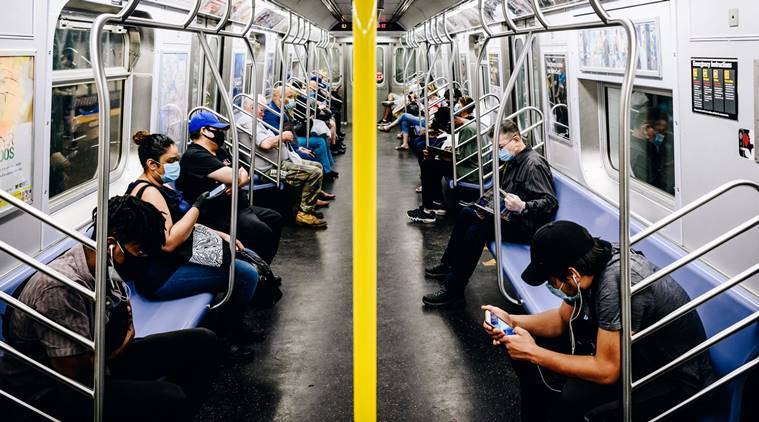In US, political divisions stymie return to lockdowns

Stay tuned with 24 News HD Android App

US mayors of Houston and Atlanta are calling for a return to stay-at-home orders to staunch an alarming spike in coronavirus cases, but are being hindered by state governors who favor less restrictive measures.
While new lockdowns have been ordered around the world in cities like Melbourne, Manila and Tangier, such actions are much harder to accomplish in the United States where de-centralized power structures can result in political turf wars.
America is by far the hardest-hit country in the world, with more than 135,000 deaths and 3.3 million cases. Over the summer, the outbreak has shifted its locus to states with predominantly Republican governors.
Officials in the greater Houston area, home to more than six million people, have called for a new lockdown after it saw nearly 1,600 cases in 24 hours.
This was about ten times more cases than it took for Melbourne, a city of a comparable size, to re-trigger its lockdown.
"I strongly recommend that for the next two weeks, that if I were the governor, I would just bring things down, shut things down for the next couple of weeks," said the city's Democratic mayor Sylvester Turner over the weekend.
But the Republican governor Gregg Abbott has so far resisted, placing his hopes on a state-wide mask order to bring down the caseload.
"It was our last best effort to slow the spread of COVID-19," the governor told reporters. "If we do not slow the spread of COVID-19 ... the next step would have to be a lockdown."
Texas was among the first states to begin reopening, on May 1. Bars reopened on May 22 but the governor had to close them a month later, and made the wearing of the masks mandatory on July 3.
Hospitals stretched
The public health crisis brought about by the pandemic has divided the country politically.
Early on, when the epidemic was centered in New York and the northeast, many Republican leaders dismissed the crisis as overblown, making it politically difficult for them to reverse course.
In coronavirus-stricken Florida, more than 15,000 new cases were reported Sunday, a state record, and the rate of deaths has also started to rise.
Governor Ron DeSantis, a Republican, has ordered bars closed but refused to issue mandatory mask directives or impose lockdowns, relying on local city and county authorities to make those calls.
Local leadership in Miami, which is also led by Republicans, have so far resisted -- but that might soon change.
The number of COVID-19 patients in the city's intensive care wards is seven times higher than it was in March and April, according to Mayor Francis Suarez.
Asked by CNN on Monday whether he would consider a stay-home-order, he said: "If we get to a point where we don't feel like we can care for the people that are getting sick, that's something that we're going to have to strongly look at."
But he added that hospitals were not yet overwhelmed.
In Miami-Dade County (2.7 million residents), a third of the tests were positive last week, according to the top county official, who closed indoor gyms and restaurants.
Political divisions
In many other parts of the country, conflicts have arisen between competing power centers. In California, a statewide masking order has been ignored by sheriffs in more conservative districts who have refused to enforce it.
In Atlanta, Georgia, Democratic Mayor Keisha Lance Bottoms announced Friday she was bringing the city back to Phase 1 reopening -- restrictive measures that allow only essential trips away from home.
This sparked a turf war with Republican Governor Brian Kemp who tweeted that her actions were "non-binding and legally unenforceable."
Kemp in turn blamed Atlanta's problems on Bottoms -- seen as a potential vice presidential candidate to run alongside Joe Biden -- accusing her of failing to enforce state restrictions.
At the federal level, the Trump administration's policy is to recommend the use of masks and against the opening of bars -- but nothing is mandatory.
"For this to work we have to have like 90 percent of people wearing a mask in public in the hotspot areas, if we don't have that we will not get control of the virus," senior health official Brett Giroir said Sunday.
